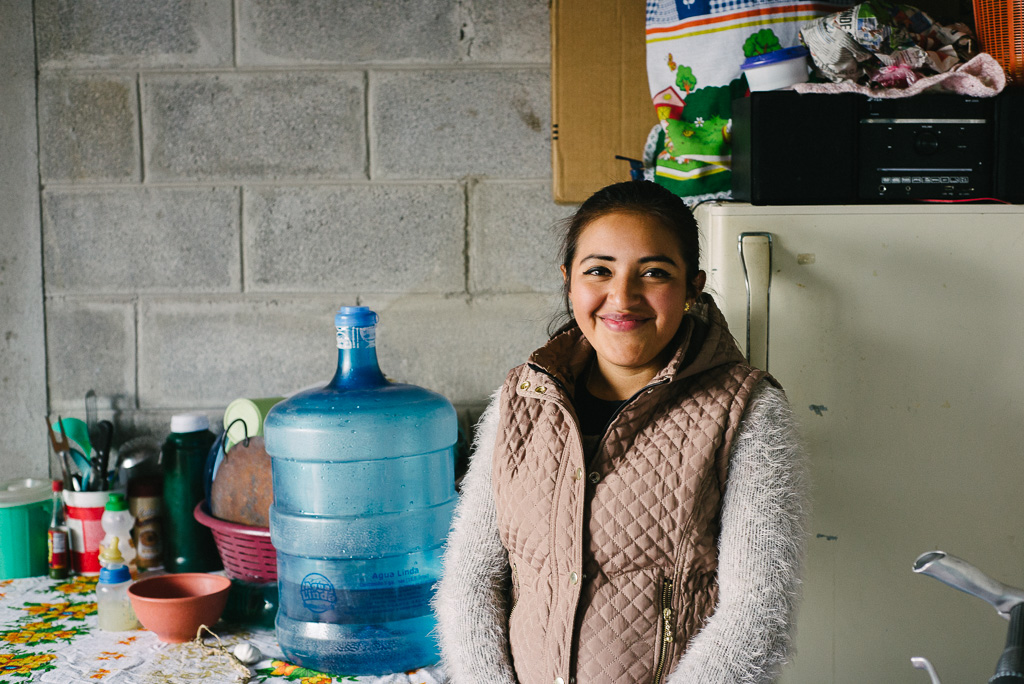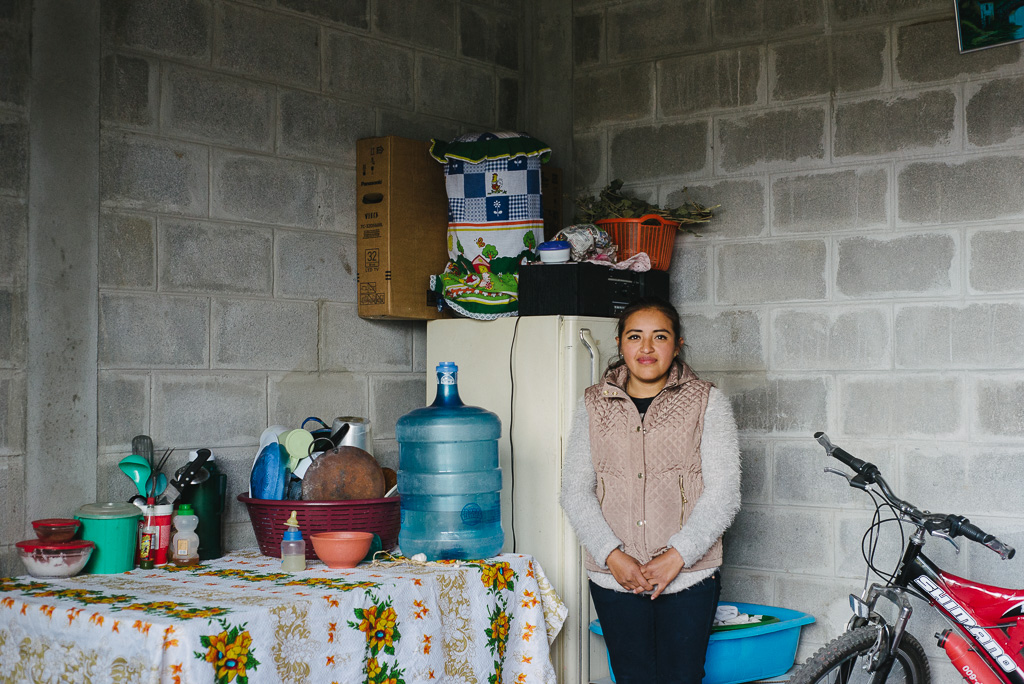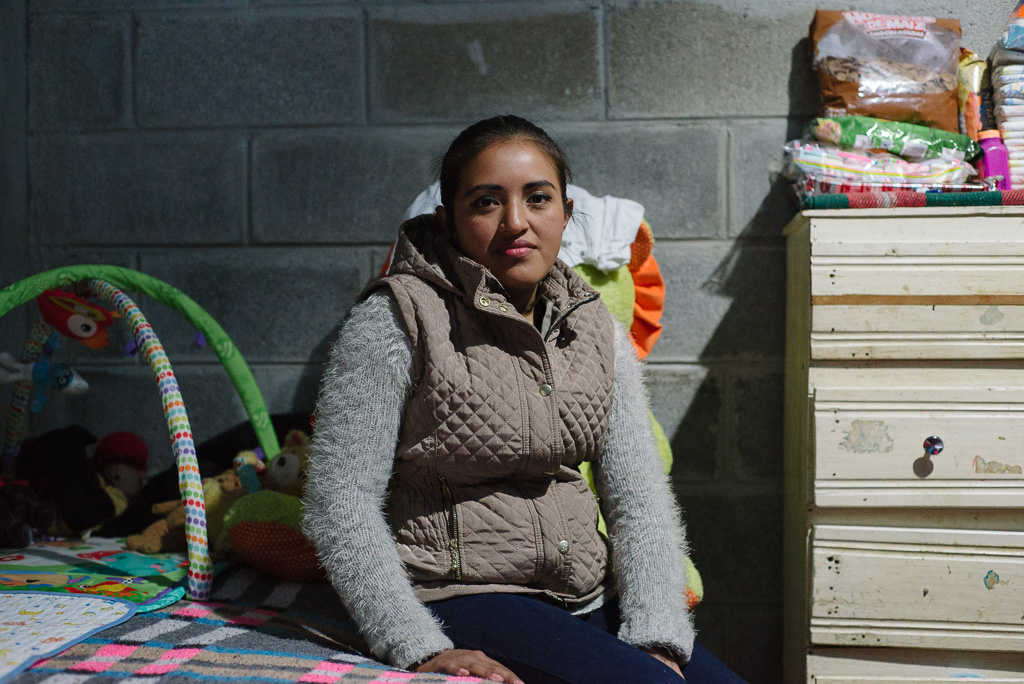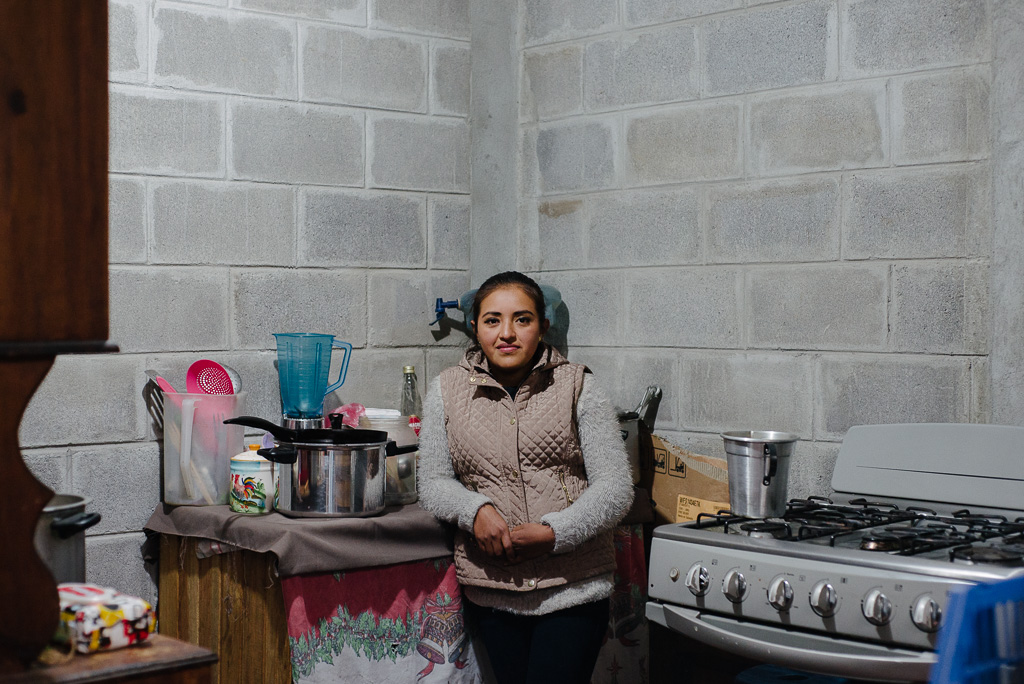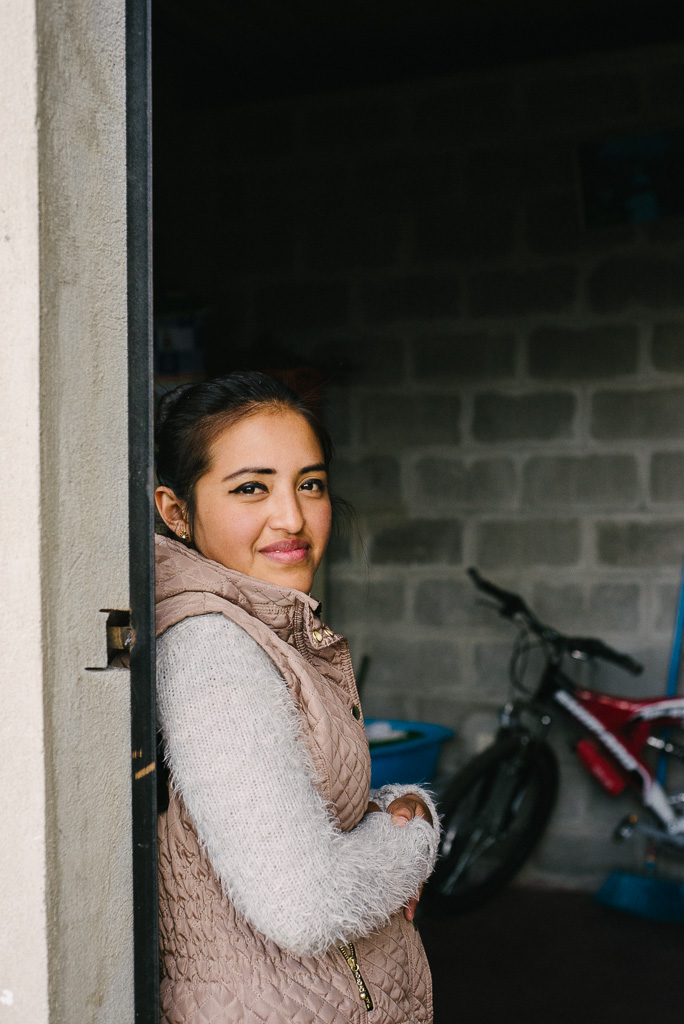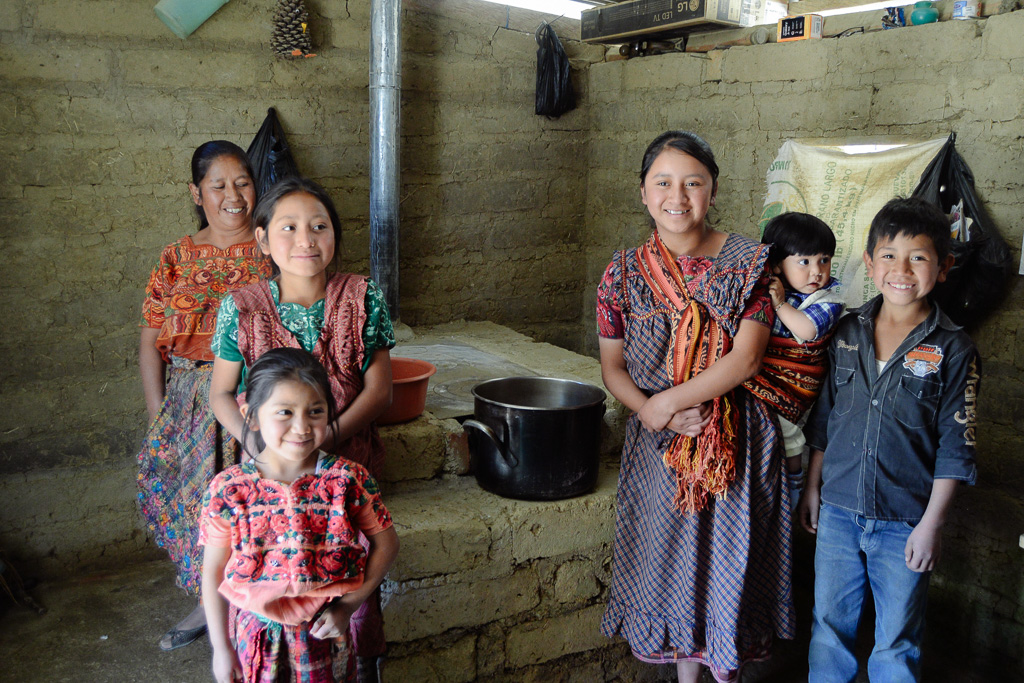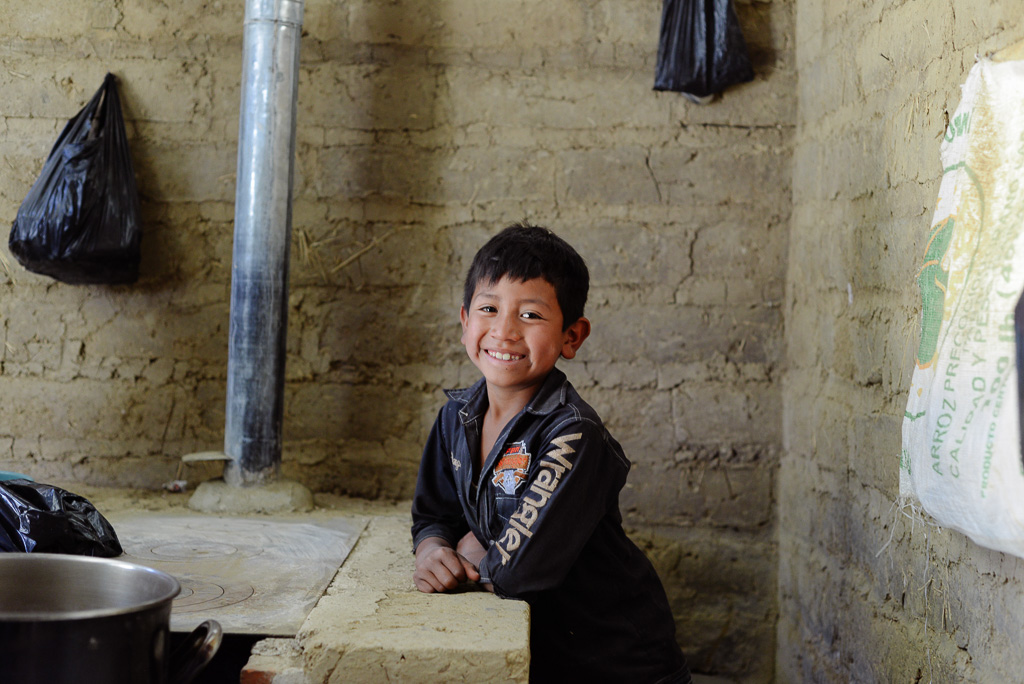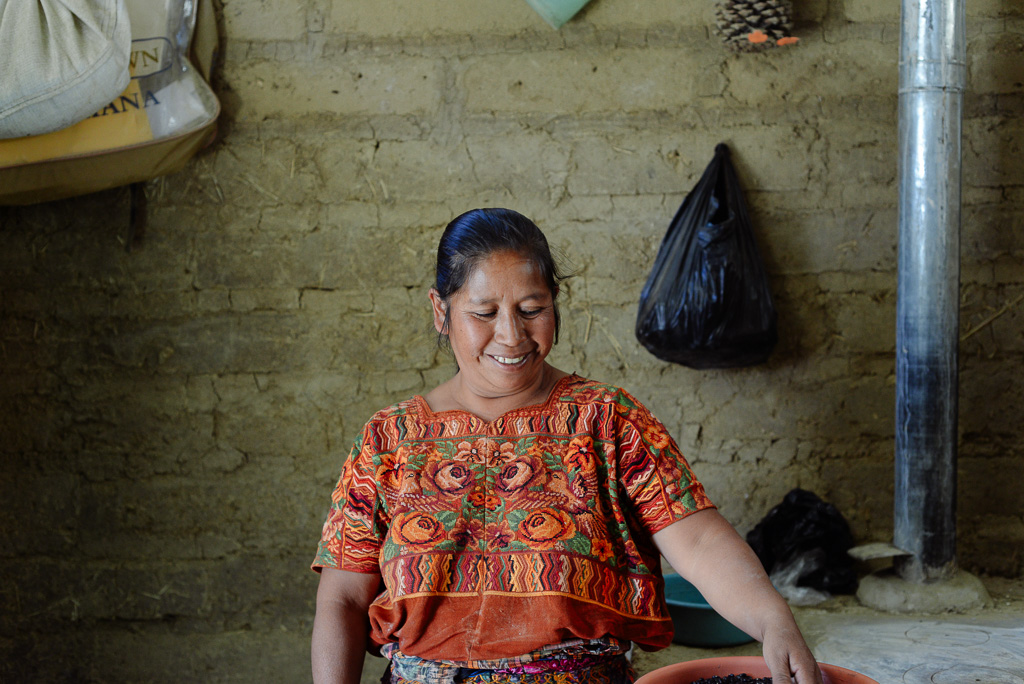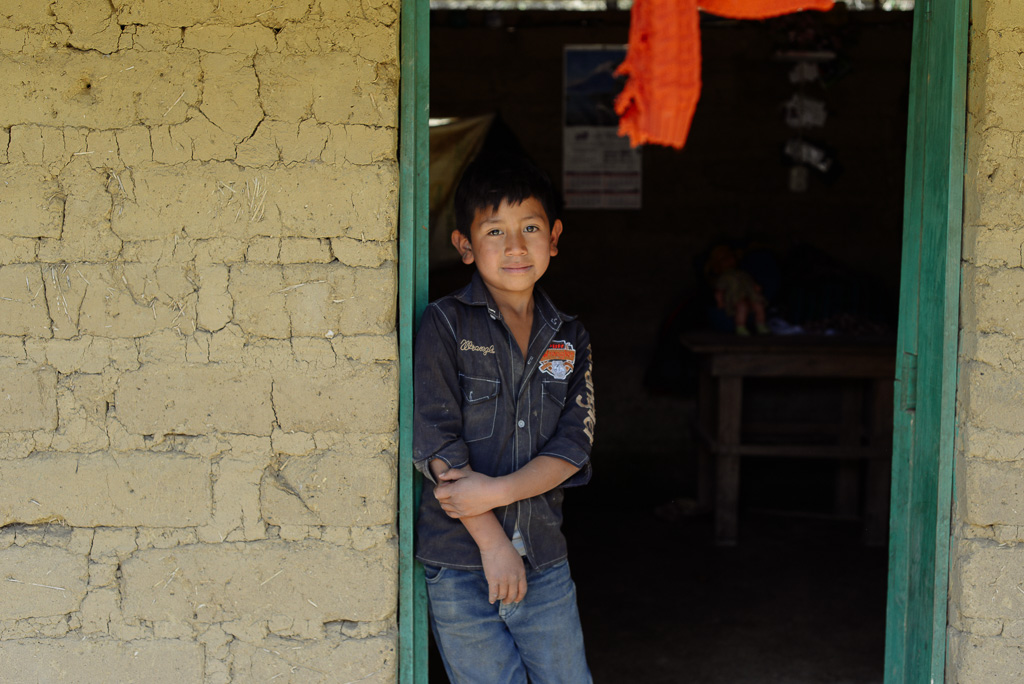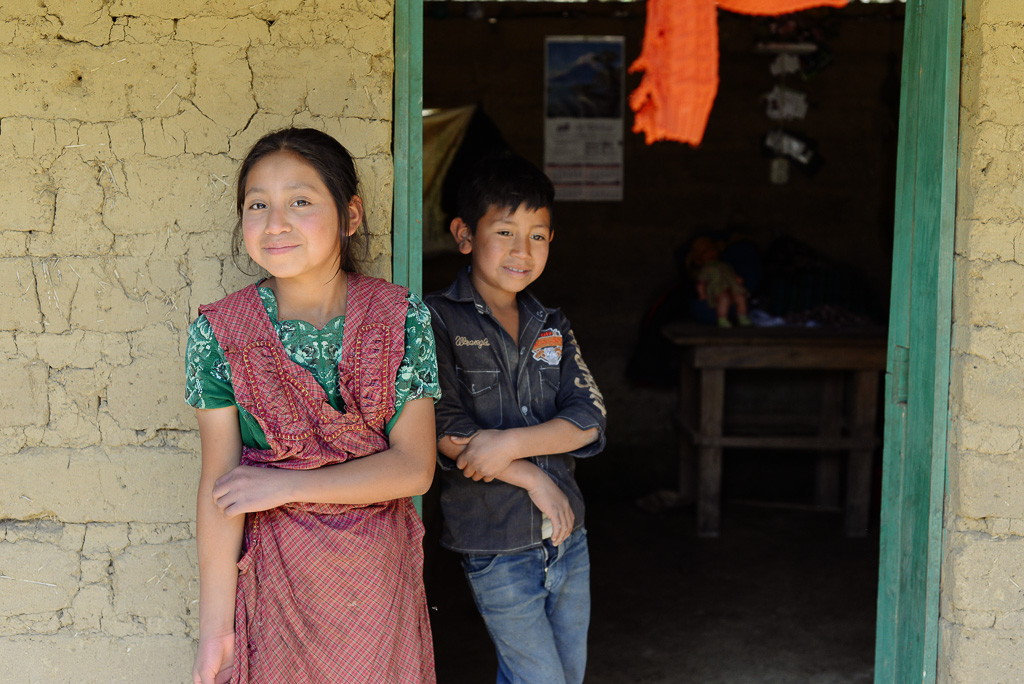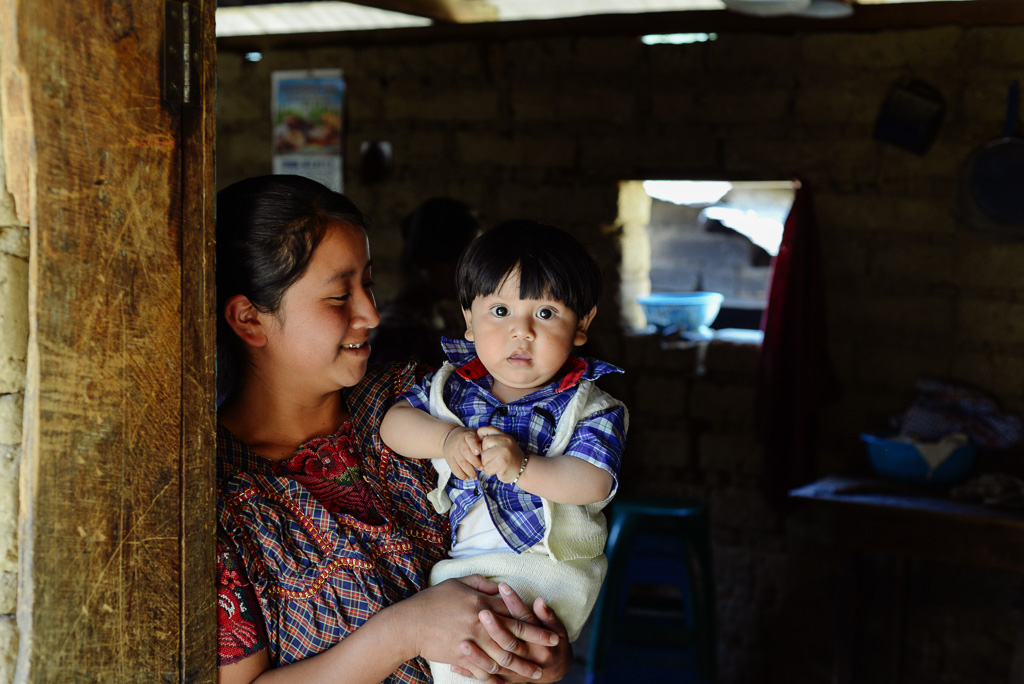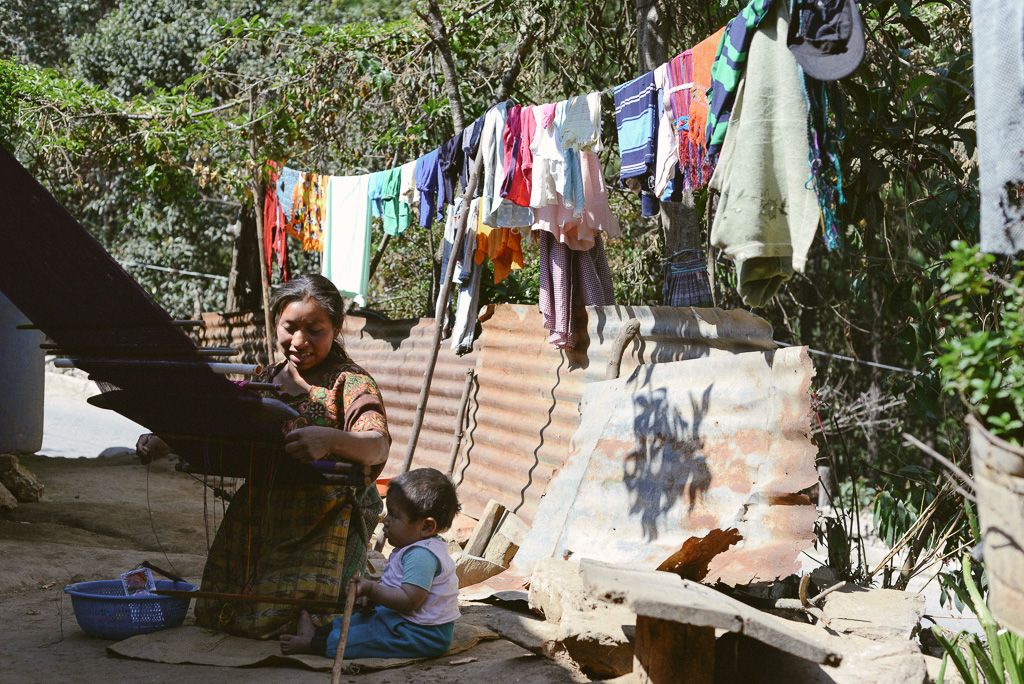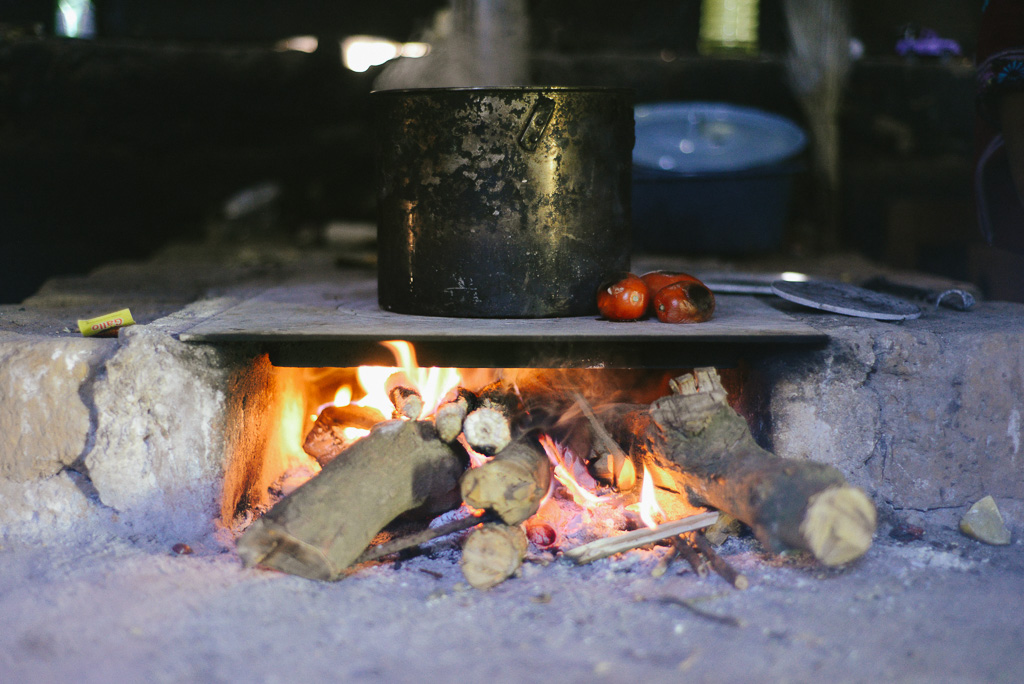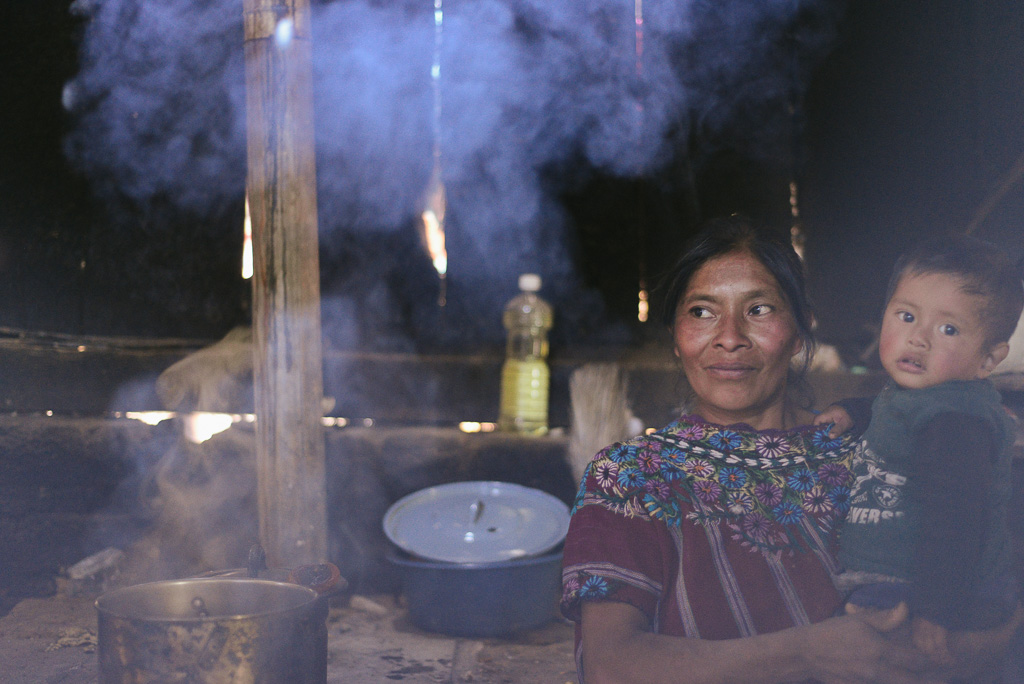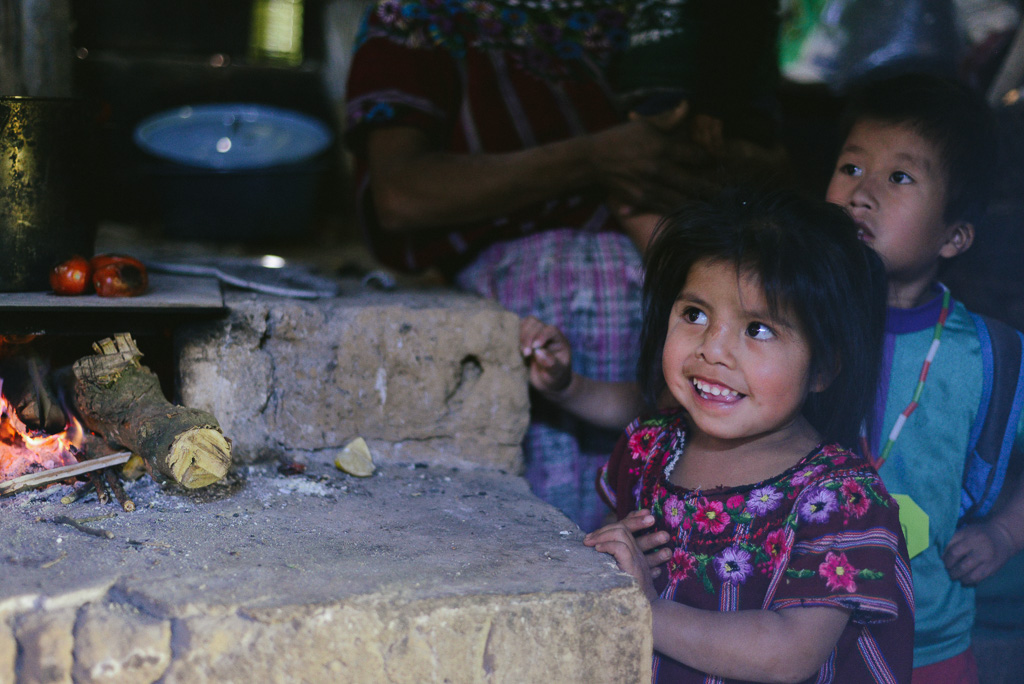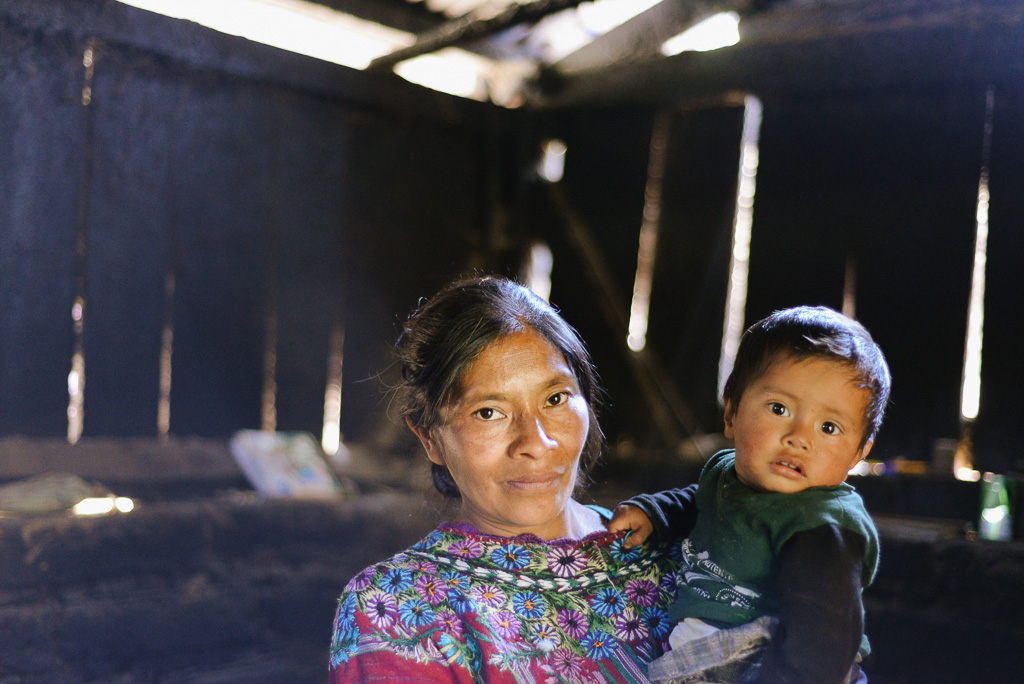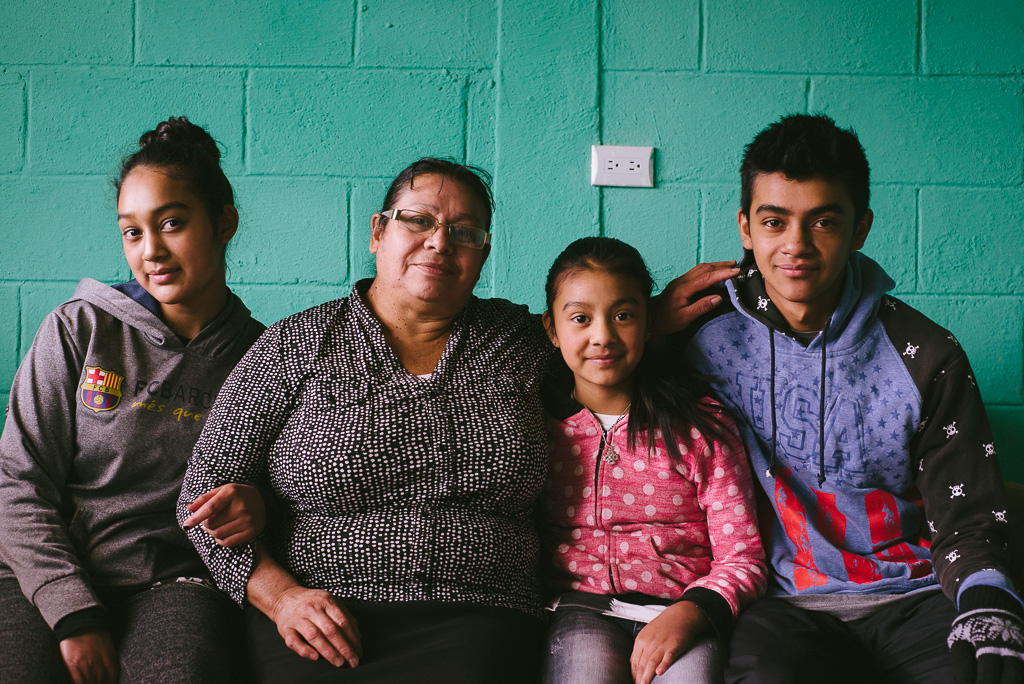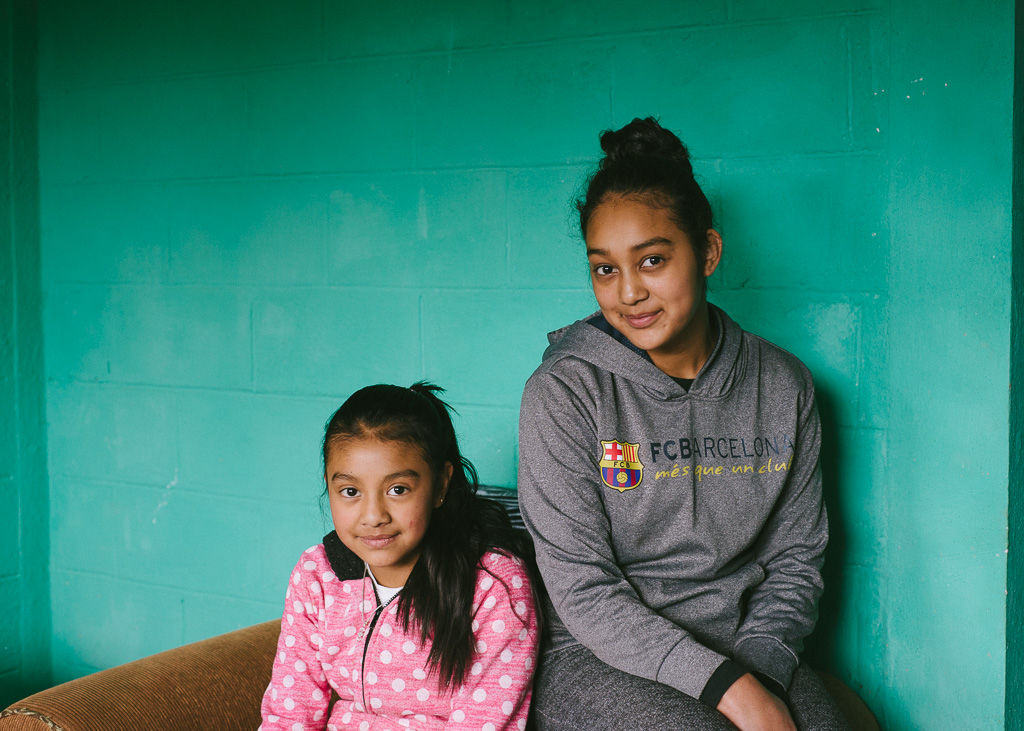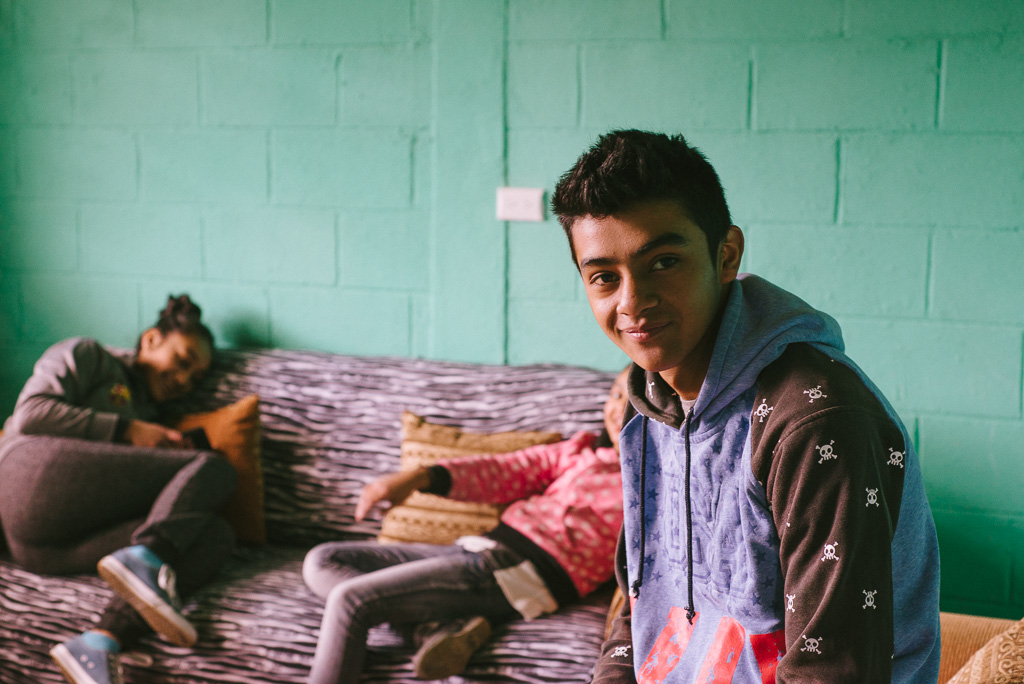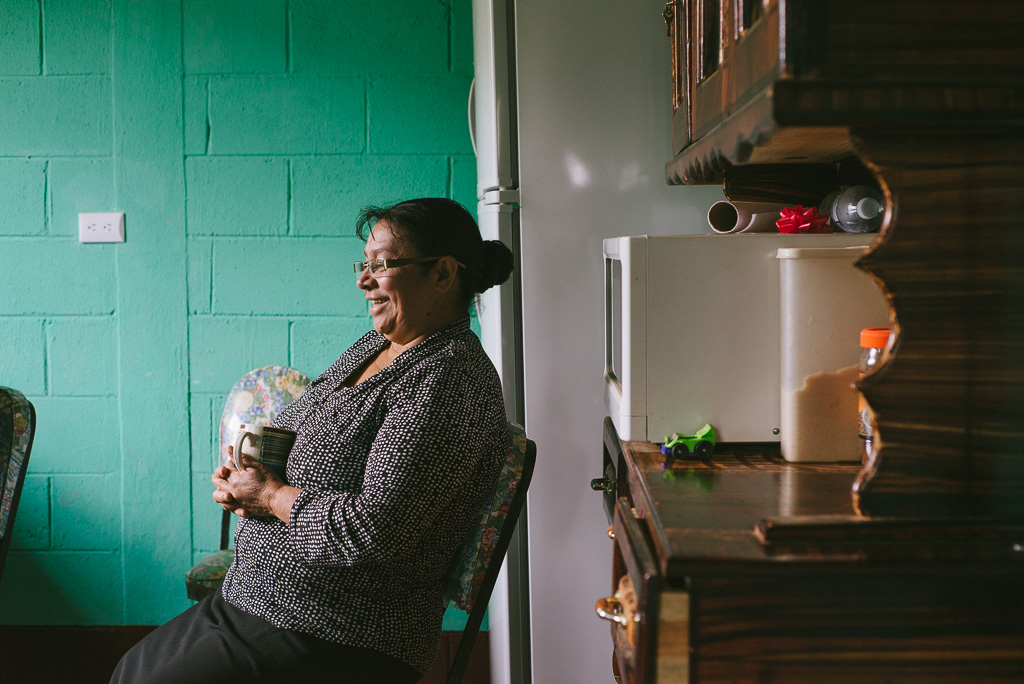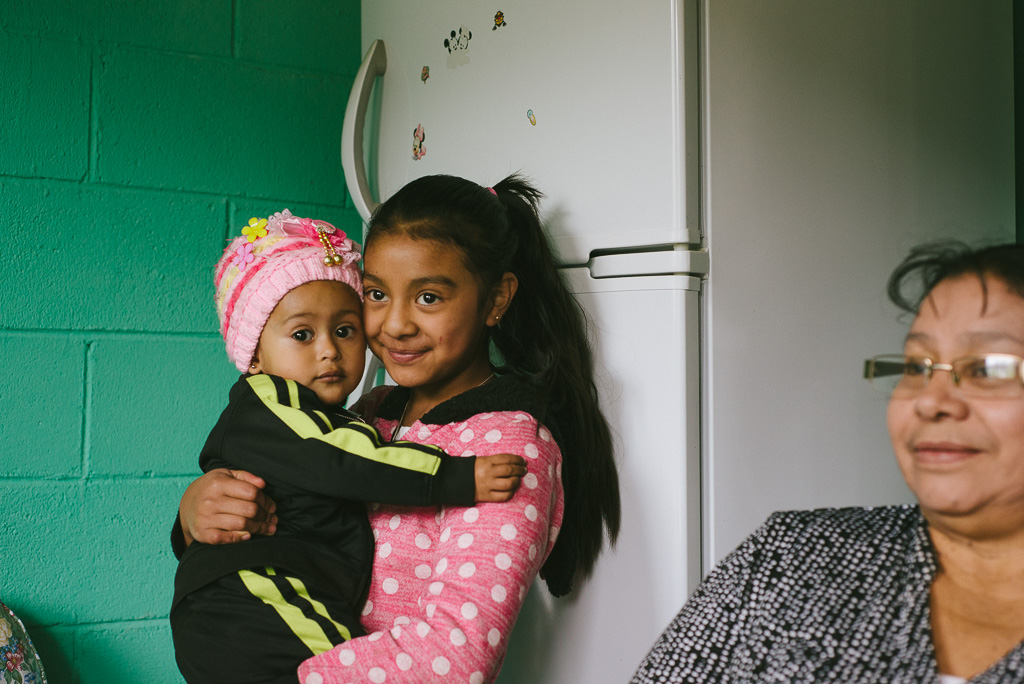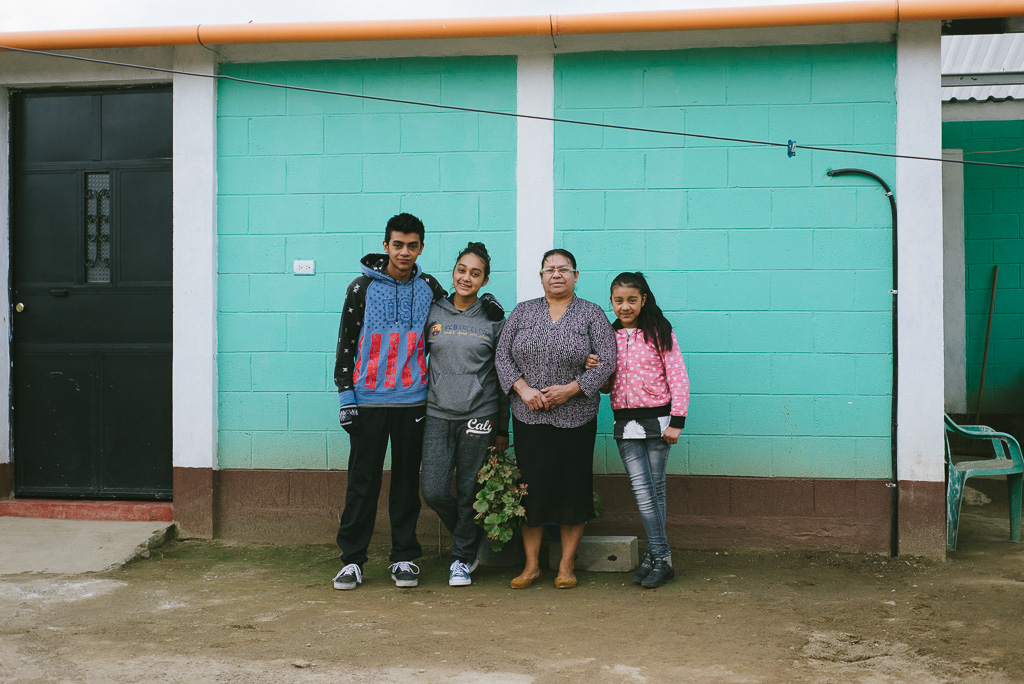
Santos Tuy Ajú
“We wanted to build a new stove because of the smoke. It made us cough, and we had to go to the doctor in Sololá, which is 45 minutes away from here. Sometimes, we went, sometimes we didn’t. Sometimes, they would have medicine, sometimes, no. Sometimes, the children suffered from the smoke, and sometimes, they burned themselves.”
Santos Tuy Ajú tells her story carefully in Kaqchikel, a local Mayan dialect spoken in the Sololá department of Guatemala. Her confident posture and calm, clear voice are all indicative of the community leader that she is.
Even her family is entranced. Her two younger children, four-year-old Ivan, and seven-year-old Maura, both linger next to their stove to listen to her speak. “What I like most about this stove,” she explains, “is that all the smoke is gone. When I light it, my work is done for me, and I can feed my family.”
Santos and her family of ten live tucked between the dense forests and hills of Sololá. Their resources are limited, especially when finding firewood to warm themselves. “We buy wood, but when it gets too expensive, we have to search for it. When we buy wood, we used up a bundle in fifteen days, and it cost us 300 Quetzales ($41.00),” Santos remarks. “Now, it lasts longer with the new stove, and whatever money we save, we use to buy clothes for our kids, plus more materials that will let them be successful in their studies.”

Through a friend, Santos came to learn about Habitat Guatemala’s Healthy Home Kit programming, which provided resources for families like hers. Santos became determined to get her entire community on board, and got in contact with the local affiliate. “We asked so many questions, because that was really important to us,” she describes. “Twenty-seven families have been supported through this project, and we are so grateful for it.”
As for the group of volunteers that assisted Santos with building her stove, she speaks of them with love. “The group that came spent a day constructing it with us. I remember them clearly. Together, we shared peaches, and corn. Our family taught them all about the corn, how to eat it, and how to make tortillas from it.” Santos then laughs. “I remember taking all the photos. We kept all of them.”
She remains grateful to their work and efforts. “May God bless you, thank you so much for coming here to support families in the community,” she says. “I hope that you continue to help families like ours, for many of them still need it. I hope that you remember us, and everything that you have done.”

Juliana Palaj Cumes
A group of neighborhood women gather around Juliana Palaj Cumes’s smokeless stove to circulate the daily gossip. Chattering in Kachikel, the women giggle at one another’s news between bites of tortillas and beans. This same collective of women helped Juliana become an owner of the very stove that they sit around. “We came to know Habitat when doña Santos, the community leader, came to us to tell me about the projects started by Habitat Guatemala,” Juliana says. “She began a system of support in our community.”
Juliana is pleased with how everything turned out. “I like the new stove more because it saves us so much wood. We can cook lunch without having smoke everywhere.” She points to the ceiling, where long tendrils of ash still hang above her head, a reminder of what once was.
Before building her new stove, Juliana recalls experiencing great difficulties with cooking. “I used on an old stove for fifteen years. It wasted a lot of wood and produced too much smoke.” She forms tortillas as she speaks, pressing the mass of corn in her palms. “The smoke would fill up the kitchen, which bothered our eyes and caused us to cough. We went to a health center once in awhile, but when they didn’t have medicine, there was nothing that we could do, which left us sick.”
Under her elbow, Juliana’s youngest son, three-year-old Romeo, sips quietly on his atol corn drink. He shifts closer to seek the warmth of the stove. “The old stove gave me so many problems, and it used to burn me when the wood fell out of it,” she reveals.

Thankfully, the new smokeless stove has saved Juliana’s family from health problems. Furthermore, collectively, they have more time and energy than before. “With the extra time we save, my husband and children may work a bit more to earn more money for us,” she says. “Before, we used so much wood that they would return after work and realize everything that they had found a few days before had been used up. We’d say ‘where are we going to find more wood for all of us?’”
Juliana remembers building her stove with great fondness. “The construction of the stove took about half a day. My children cut the blocks beforehand. And I remember the group of volunteers still,” she beams at the memory. “I have a photo of them in my bedroom. They may always come back and are always welcome. They were so friendly, wonderful.”
Her message for them? “One day, we will meet one another once again. On behalf of my family, thank you very much for the work that you came to build the stove. The stove has made an enormous difference, thank you so much.”

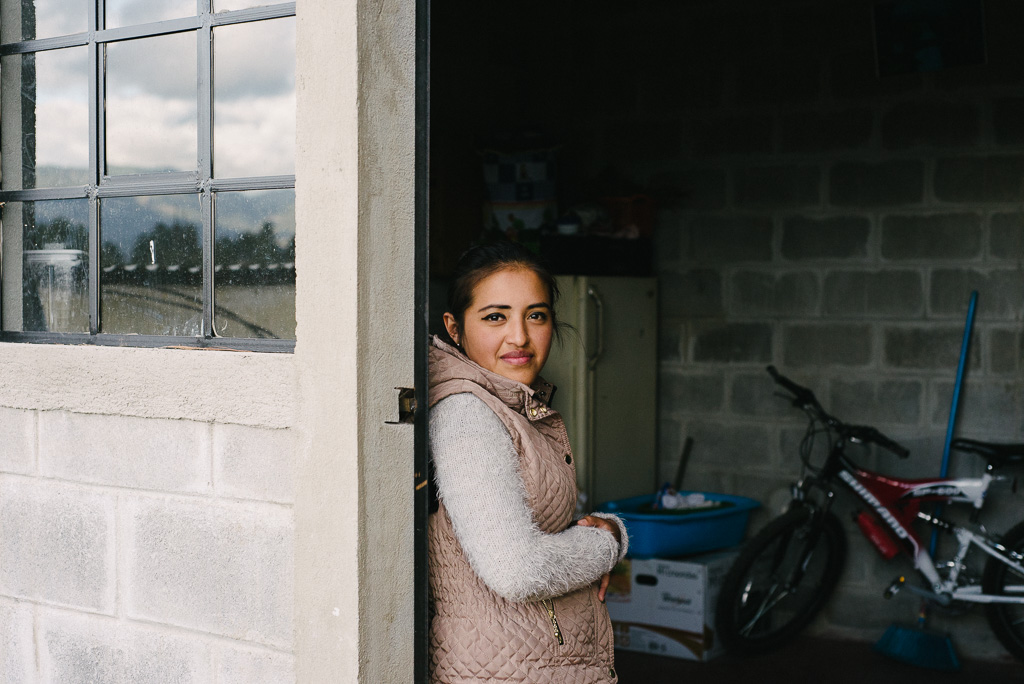

 Ingrid was familiar with Habitat for Humanity because her mother built a Habitat house several years ago and she was excited that she and Manolo were approved to build a house. Ingrid says that, for the most part, the process was smooth. About halfway through the process, they switched from working with one mason to another, but fortunately soon after that a group of Thrivent volunteers came and spent a week working on the house and helped push the process forward.
Ingrid was familiar with Habitat for Humanity because her mother built a Habitat house several years ago and she was excited that she and Manolo were approved to build a house. Ingrid says that, for the most part, the process was smooth. About halfway through the process, they switched from working with one mason to another, but fortunately soon after that a group of Thrivent volunteers came and spent a week working on the house and helped push the process forward.